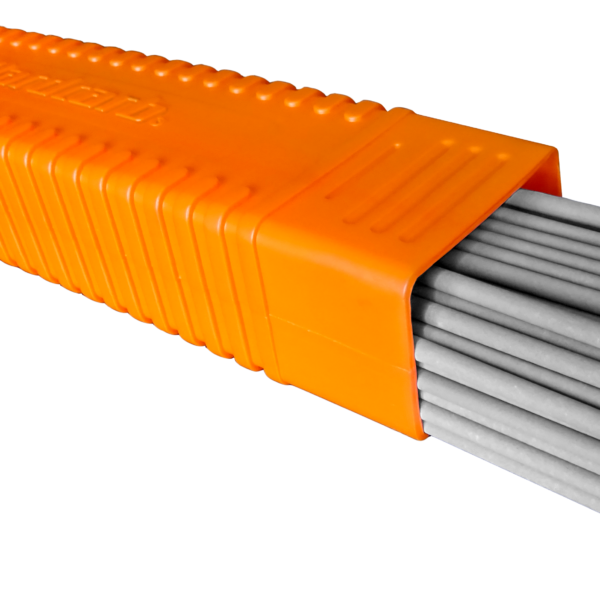Hardcarb 7200

Tungsten carbide hardfacing superalloy suitable for electric arc welding. The weld deposit possesses excellent abrasion resistance. Perfectly suited for hardfacing and repairing tools for mining, excavation, dredging, oil drilling, deep drilling, ceramic, clay processing and brick manufacturing.
Weld deposit characteristics:
The weld metal consists of a tungsten-steel-matrix with embedded spherical fused tungsten carbides of extremely high hardness. The extraordinary high hardness, toughness and volume of the spherical fused tungsten carbide ensures excellent abrasion resistance in the severest of wear environments.
The alloy has limited shock resistance and is suitable for hardfacing of edges.
Recommended uses and applications
Typical applications:
» tooling for mining equipment
» tooling for oilfield equipment
» tooling for deep drilling equipment
» intensive mixer beaters and scrappers
» tooling for road and highway construction equipment
» excavator parts and dredging cutters, tooth points
» ceramic, clay processing and brick manufacturing
Additional info
Anti-wear suitability
| Metal-to-Metal friction Metal surfaces in relative motion forced into contact with or without lubricant. Degradation by the formation of micro-welds between the contacting surfaces. | - |
| High pressure abrasion Wear by relative movement under pressure of mineral particles of suitable hardness, shape and texture to remove material from the metal surface, leaving superficial deformation. | - |
| Cavitation Tearing out of grains from the metal surface by the formation and implosion of bubbles in a liquid in rapid motion. | - |
| Mechanical fatigue Fatigue and formation of cracks in surface regions due to tribological stress cycles that result in the separation of material. | - |
| Thermal fatigue Cyclic exposure to high temperatures leading to permanent deformation by alternate expansion and contraction. Alteration of the structure and properties of the material. | - |
| Hot oxidation Creation of a poorly adhering oxide layer that reforms constantly. Degradation by loss of material thickness. | - |
Workability
| Work hardening Work hardening is the process of making a metal harder and stronger through plastic deformation. When a metal is plastically deformed, dislocations move and additional dislocations are generated. | |
| Edge retention Suitability for creating sharp edges and retaining them during operation. | |
| Machining Machinability is the ease with which a metal can be cut (machined) permitting the removal of the material with a satisfactory finish at low cost. | Not possible. Only grinding possible. |